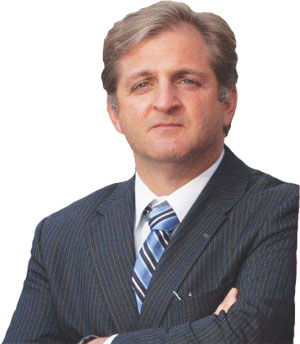Despite outrage at the stay of charges in a high-profile extradition case, the court’s decision and the resulting report on how the government can do things better in the future are proof that the system worked as it should, according to criminal defence lawyers.

“The fact that the charge was stayed indicates that the system worked,” says Toronto defence lawyer Sam Goldstein of the Nova Scotia ruling in
R. v. MacIntosh.“The system will be better for all Canadians,” he adds.
Goldstein made the comments in the wake of a recent federal Department of Justice report on the government’s actions in the case. The government released the report this fall after the Supreme Court of Canada dismissed the Crown’s appeal in MacIntosh earlier this year.
The case dealt with a 14-year delay in bringing a man who had spent several years in India to trial on sexual abuse charges. In that case, authorities
extradited Ernest Fenwick MacIntosh in 2007 despite laying charges in 1995. In 2011, the Nova Scotia Court of Appeal quashed his conviction by a lower court and entered a stay on the basis of unreasonable delay.
The report on the federal government’s involvement in the case documents a litany of mistakes and misjudgments by a range of officials. While the effort to extradite MacIntosh began in 1997, for example, Nova Scotia officials stalled in providing the federal government with affidavits required by India.
By the time they delivered the information a year later, it was still missing identification evidence linking MacIntosh to the alleged offences. By 2002, they still hadn’t provided it. At that point, prosecutors in Nova Scotia had decided they wanted to seek extradition on additional charges, which led federal officials to ask for first-person affidavits in relation to eight new complainants. In June 2003, Nova Scotia provided five sworn affidavits again without identification evidence.
Around that time, responsibility for the file at the federal international assistance group had transferred to new counsel who didn’t appreciate the urgent nature of the matter.
According to the report, counsel didn’t review the file and didn’t use an administrative system that triggers a reminder to follow up on a matter.
There were other problems, including the fact that despite MacIntosh’s presence on a passport watch list, federal officials nevertheless issued the travel document to him in 1997 and renewed it in 2002. In the end, it took until June 6, 2007, for MacIntosh’s extradition to take place.
Anger over the handling of the case prompted federal Justice Minister Peter MacKay to apologize for the government’s actions this fall. “First and foremost, our government wishes to apologize and express our sincerest regret to the victims for the mistakes made by federal employees who played a role in this tragic case and the institutional failures that allowed this travesty to happen,” said MacKay on Oct. 25.
“Canadians expect and deserve better. It is my hope that the findings of this review will reassure Canadians that the shortcomings in federal processes have been addressed and help restore confidence in our justice system.”
As part of its review of the case, the government noted it had undertaken a number of process improvements to prevent such situations from happening again. On the extradition side of things, for example, it says it has improved file management by assigning a lawyer and a paralegal to each case rather than just one person and introducing an electronic system to automatically flag matters requiring attention. On the passport issue, it says it has boosted refusal and revocation powers through measures such as giving passport security officials direct access to the Canadian Police Information Centre. In addition, the government has introduced facial recognition software into the passport screening process.
According to the report, the government has seen positive results in speeding up the handling of extradition requests. In the first three months of 2003, for example, the median number of days per completed request was almost 240. By 2012-13, that number was down to 89.
“There really seems to be a sign of improvement,” says Toronto criminal lawyer Daniel Brown, who notes the “only way” to bring about change is often to have a stay in unpopular cases such as
MacIntosh.
“I think it’s outrageous some of the conduct that was going on,” he says, adding that much of the delay was due to the actions of Nova Scotia officials rather than the federal government.
Goldstein, meanwhile, notes the case reinforces the importance of following proper procedures in extradition matters. “These procedures are there to protect Canadians,” he says, noting that if Canada was facing an extradition request from another country, it would also want to have the sorts of details on the case it took officials in
MacIntosh so long to send to India.
Goldstein adds that while the government is now introducing greater file ownership in the wake of the report, he’d also like to see increased accountability for Crown prosecutors who make mistakes like those in
MacIntosh. “If people make poor decisions . . . then they should be punished for it,” he says.
But ultimately, he suggests the case is a reminder of the government’s responsibility in these matters. “The government is in control of the process,” he says.
“The state has all of the resources, so the state has to be held accountable for the way it conducts its process.”
And don’t blame the Charter of Rights and Freedoms for providing people like MacIntosh with an option for getting a stay due to delay, he adds.
“When Charter remedies are awarded, they’re only awarded in circumstances that are justified,” he adds.

 “The fact that the charge was stayed indicates that the system worked,” says Toronto defence lawyer Sam Goldstein of the Nova Scotia ruling in R. v. MacIntosh.
“The fact that the charge was stayed indicates that the system worked,” says Toronto defence lawyer Sam Goldstein of the Nova Scotia ruling in R. v. MacIntosh.